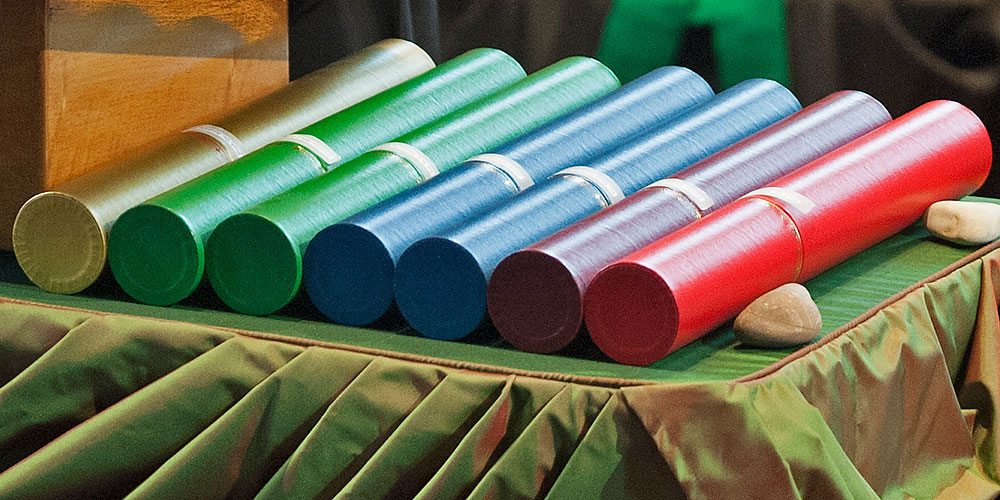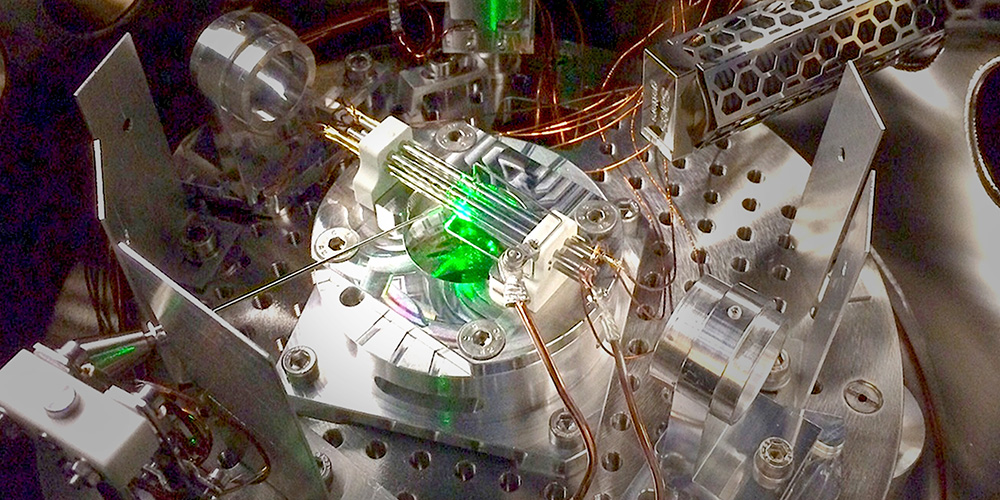Even without a ceremony: the University of Basel honors outstanding researchers
The Covid-19 pandemic has meant that a number of special anniversaries couldn’t be properly celebrated in 2020. The University of Basel was also forced to cancel the ceremony to mark its 560th Dies Academicus. Nevertheless, the university is honoring a number of its scientists and researchers for their outstanding achievements.
27 November 2020
This year, the pandemic has brought fundamental changes to many aspects of life. Among other things, it has led to the cancellation of the festivities that the University of Basel traditionally holds at the city’s St. Martin’s Church as part of its Dies Academicus, together with the awarding of honorary doctorates. Even without a ceremony, however, the university is honoring key research contributions from its members.
Sponsored by the university itself, the Amerbach Prize is awarded to support and honor young academics and this year goes to Dr. Renato Frey from the Faculty of Psychology. As an Ambizione Fellow of the Swiss National Science Foundation, Frey researches individual differences in the way people make decisions when they are not 100% certain of the consequences.
With this award, which takes the form of a medal and prize money of CHF 5,000, the university is honoring Frey’s important theoretical and methodological contribution to the field of decision sciences.
Romantic relationships
One of this year’s winners of the Emilie Louise Frey Prize for the promotion of young female scientists also earned her doctorate at the Faculty of Psychology. Dr. Janina Bühler is receiving this award, sponsored by the Basel Section of the Swiss Association of University Women (SVA), in recognition of her outstanding doctoral dissertation on the interplay between personality and romantic relationships over a person’s lifespan.
Her work examined this interplay from three perspectives: autobiographical accounts, the dynamics of personality traits over the length of an individual’s life, and everyday relationships and the related cognitive, emotional and behavioral processes that are experienced.
Church and state in Kenya
The Faculty of Theology is honoring Dr. Stephen Achola Asol Kapinde for his doctoral thesis on non-European Christianity, in which Kapinde describes the development of the relationship between the Anglican church and the state using post-colonial Kenya as a case study. On the one hand, his thesis notes the church’s important role in the process of democratization and as an actor that reconciles and champions the rights of the most vulnerable members of society. On the other hand, Kapinde also acknowledges the church’s entanglement in corruption and issues of ethnicity, and its lack of cohesion in matters of human rights.
The Faculty of Law prize, sponsored by the law firm Vischer, is this year awarded to Dr. Kevin MacCabe for his doctoral thesis on the nature and functions of digital value units transferred using blockchain technology, and the associated legal issues. With this work, he has made an important contribution to the Swiss Code of Obligations and property law, and provided vital momentum for legal practice, according to the award laudation.
The Faculty of Medicine prize for the best PhD thesis, sponsored by the Goldschmidt Jacobson Foundation, is awarded to Dr. Jeanne du Fay de Lavallaz. Through her research, she has made a significant contribution to improving the early diagnosis and management of patients suffering from syncope, a transient loss of consciousness or “fainting”.
The Faculty of Medicine is awarding Dr. Christian Epple the prize for the best thesis submitted for a medical doctorate whose topic stems from the Department of Plastic, Reconstructive & Aesthetic Surgery and Hand Surgery. Epple is receiving the award, sponsored by the five university hospitals in northwestern Switzerland, for his contribution to a project to produce replacement bone tissue permeated by blood vessels in specific three-dimensional shapes. The background to the project is that bone lost following an accident, cancer or an infection is often replaced by bone material transplanted from elsewhere in the body. However, given that only limited amounts of healthy bone can be removed, this shortage could potentially be overcome by using cultured replacement bone tissue.
Literary work behind the scenes
The Faculty of Humanities and Social Sciences prize, sponsored by the L. & Th. La Roche Foundation, is awarded to Dr. Ines Barner for her doctoral thesis in media studies, in which she examines the often inconspicuous yet powerful role of editors in literary creation. Barner used the authors Robert Walser, Rainer Maria Rilke, Peter Handke and Marcel Beyer – and their respective editors – as case studies in order to cover a period spanning from classical modernism to contemporary literature.
The Faculty of Science is awarding two prizes, sponsored by Adobe Research (Schweiz) AG, to Dr. Lucas Thiel and Dr. Lisa Karina Traunmüller. Thiel is receiving the prize for his doctoral thesis in physics. As part of his work, he succeeded in building a scanning NV (nitrogen vacancy) magnetometer for the first time. This new instrument opens up a world of new magnetic, superconducting and semiconducting materials thanks to the ability to conduct high-resolution measurements.
Traunmüller is receiving the award for her doctoral thesis in neurobiology, in which she presented groundbreaking insights into how the functional diversity of neurons and synapses is created in the mammalian brain. Her focus was on the processing of RNA molecules (known as splicing), which results in different variants of these “working transcripts” of the genetic material as instructions for the construction of proteins. Highly selective splicing programs thus control specific synaptic functions in the mammalian brain.
State measures and their impact
The Faculty of Business and Economics prize, sponsored by the Basler Kantonalbank Foundation for the promotion of research and teaching in economics at the University of Basel, goes to Dr. Dragan Filimonovic in recognition of his doctoral thesis on causal relationships between state measures and individual behavior. His research focused on three areas: consumer behavior, the supply of labor and the enforcement of laws and regulations.
The Faculty of Psychology is awarding the Steven Karger Prize, sponsored by the medical and scientific publisher Karger, to Jenna Wünsche in recognition of her publication in the Journal of Personality and Social Psychology. In this analysis of a long-term study, she examined the change in life satisfaction of people in long-term partnerships, with a particular focus on couples in which one partner died during the study period. She was able to demonstrate how the approaching death of one partner has various effects on the life satisfaction trajectories of both partners.
The the honorary doctorates of the Faculties, the University of Basel’s sports prize, the Alumni Prize and the Schwizerhüsli prize were not awarded this year.
Further information
Matthias Geering, University of Basel, Head of Communications & Marketing, phone: +41 61 207 35 75, mobile: +41 79 269 70 71, email: matthias.geering@unibas.ch



